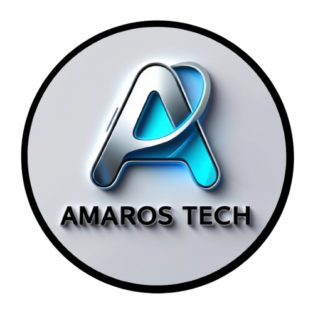
Businesses today face rapid change. Artificial intelligence reshapes how consulting services operate, bringing precision and speed to decision-making. Firms like McKinsey deploy chatbots like Lilli, while Ernst & Young’s EY.AI demonstrates corporate adoption. By 2025, 75% of enterprises will use AI daily, reports Gartner.
Specialized knowledge now drives success. Boutique firms, such as Consulting Quest, leverage AI for smarter consulting procurement. Tools like Quantive StrategyAI merge strategy with machine learning, proving AI’s role in finance and healthcare. The market grows at 35% annually, signaling a shift from broad advice to tailored solutions.
Key Takeaways
- AI transforms consulting with data-driven insights and automation.
- Corporate adoption accelerates, with 75% of businesses using AI by 2025.
- Specialized firms outperform generalists through AI-powered tools.
- Healthcare and finance benefit from predictive analytics and diagnostics.
- The AI consulting market expands at 35% CAGR through 2028.
Introduction: The Emergence of AI Consultants
Industrial revolutions reshaped consulting—now AI is rewriting the rules. Early advisors like Marco Polo guided trade routes. Later, firms like Arthur D. Little formalized expertise during the 19th century’s mechanical boom.
Today, technology drives urgency. Post-pandemic, 45% of CEOs prioritize AI adoption for efficiency (PwC). Digital acceleration isn’t optional—it’s survival. Regulatory pressures add fuel, demanding AI compliance frameworks.
Consider Walmart’s AI-powered supply chain:
- Predictive analytics cut costs by 15%.
- Real-time inventory tracking reduced waste.
“AI consulting bridges legacy systems and future-proof strategies.”
Modern consultants tackle business challenges with algorithms, not just spreadsheets. The shift from broad advice to precision tools is here.
Why AI Consulting is the Future
Industries now demand hyper-targeted solutions, not generic advice. Legacy consulting models falter against AI’s ability to predict, automate, and personalize. Specialists armed with machine learning tools deliver 98% accuracy in cancer detection, while banks save billions fraud detection.
The Shift from Generalist to Specialist
Broad strategies no longer cut it. Firms like PathAI prove niche expertise wins. Their algorithms detect tumors with near-perfect precision, outpacing human radiologists. Meanwhile, JPMorgan’s COiN platform reviews 12,000 contracts annually, slashing manual work.

Industries Most Impacted by AI Consultants
Five sectors dominate AI adoption. Healthcare leads with FDA-approved tools surging 300% since 2020. Finance follows, leveraging AI to combat fraud and streamline complex processes.
| Industry | AI Impact | Savings/Efficiency |
|---|---|---|
| Healthcare | PathAI diagnostics | 98% accuracy |
| Finance | Fraud detection | $12B annually |
| Manufacturing | Digital twins | 40% less downtime |
| Retail | Dynamic pricing | 5–15% margin growth |
| Energy | Predictive maintenance | $7M per plant |
“AI doesn’t replace consultants—it amplifies their ability to solve industry-specific pain points.”
The Rise of the AI Consultant: Offering Niche Expertise with Intelligent Support
Tools like ChatGPT handle 25M+ queries daily, proving automation’s value. Over 62% of consultants now integrate AI into workflows, per Consulting.org. This shift demands new skills and niches.
Core Competencies for Modern Consultants
Success hinges on mastering three areas:
- Natural Language Processing (NLP): Analyze client feedback at scale.
- Predictive Analytics: Forecast market shifts with 90%+ accuracy.
- Robotic Process Automation (RPA): Cut manual tasks by 70%.
Specialists charge $450/hour—triple generalists’ rates. Why? Precision. A healthcare AI consultant diagnosing tumors delivers unmatched expertise.
Ethics and Certification Pathways
AI ethics consulting grows 200% yearly. Firms need guardrails for bias-free systems. Programs like MIT’s AI Consulting Certificate validate skills, bridging theory and practice.
“BCG’s AI framework reduced client onboarding by 40%, proving scalable solutions beat traditional models.”
From finance to retail, tailored tools outperform broad strategies. The future belongs to those who merge human insight with algorithmic precision.
How to Become an AI Consultant in 2025
Breaking into AI consulting requires strategy, not just technical skills. Start by identifying where your strengths meet market demand. Forbes reports 73% of successful consultants begin with free pilots—proof that testing ideas builds trust.

Identify Your Strengths and Passions
Ask: What problems can I solve uniquely? Passion fuels persistence. A healthcare background? Focus on diagnostic AI. Finance expert? Fraud detection algorithms add value.
Research the Market and Competition
Analyze gaps. Tools like Crunchbase reveal demand for supply-chain AI. Differentiate by specializing—generalists struggle to compete.
Validate Your Niche and Test Your Offer
Launch a Minimum Viable Service (MVS). Example: A 30-day workflow audit for e-commerce clients. Track metrics like Lifetime Value (LTV) vs. Customer Acquisition Cost (CAC).
| Metric | Ideal Ratio | Action |
|---|---|---|
| LTV:CAC | 3:1 | Adjust pricing or processes |
| Pilot Success Rate | ≥60% | Scale or pivot |
“Start small. Adept AI’s first prototype landed $2M in contracts within 6 months.”
Legal safeguards matter. AI liability insurance costs ~$1,200/year but mitigates risk. Feedback loops refine your project delivery—implement CI/CD for continuous improvement.
Building Your AI Consulting Brand
Referrals drive 80% of consulting contracts, making branding non-negotiable (Gartner). A strong identity attracts clients and justifies premium rates. Start by defining your unique value—specialized skills like NLP or predictive analytics set you apart.
Showcasing Your Expertise
Case studies prove results. Highlight projects where your AI solutions cut costs or boosted accuracy. For example:
- AWS Partner Network: Leverage tiered partnerships to access enterprise businesses.
- Proposal Templates: Standardize scoping documents to speed up deals.
Certifications like MIT’s AI credential build trust. Share these on LinkedIn—top platforms like Toptal AI prioritize verified experts.
Networking and Client Acquisition
Conferences like NeurIPS offer higher ROI than generic events. Target 3–5 key attendees per session. Follow up with personalized HubSpot workflows to nurture leads.
“Upwork Enterprise consultants earn 2.5x more by focusing on niche AI solutions.”
Onboard clients efficiently with checklists. Track metrics like project timelines and feedback loops. This turns one-time projects into long-term opportunities.
Tools and Technologies for AI Consultants
Powerful tools redefine how consultants analyze data and engage clients. Platforms like Salesforce Einstein process 15B predictions daily, while HubSpot’s AI boosts conversions by 27%. These systems create competitive advantages through automation and insights.

AI-Powered Analytics Platforms
Data-driven decisions require robust analytics. Modern platforms offer:
- Zapier workflows connecting 3,000+ apps
- Dynamic territory mapping for sales teams
- Automated deduplication for clean datasets
Predictive lead scoring identifies high-value clients with 89% accuracy. GDPR-compliant email tools personalize outreach while maintaining compliance.
CRM Systems for Personalized Interactions
Customer relationship management evolves with AI. Key features include:
| Feature | Impact |
|---|---|
| Sentiment analysis | 38% faster issue resolution |
| Chatbot integration | 24/7 client support |
“Consultants using AI-enhanced CRMs report 40% shorter sales cycles and 31% higher deal sizes.”
These processes transform how consultants scale operations. The right tech stack turns data into actionable strategies for every client.
Challenges Faced by AI Consultants
MIT reports 70% of AI skills become outdated in 18 months. This rapid obsolescence forces consultants to prioritize continuous learning while managing client expectations.
Data Security and Privacy Concerns
Breaches cost firms $4.35M on average (IBM). AI consultants must navigate GDPR and CCPA compliance, ensuring algorithms don’t expose sensitive data. Solutions include:
Encrypted training datasets and federated learning models. AWS offers tools like Macie for automated data classification.
Keeping Up with Rapid Technological Changes
ChatGPT’s knowledge cutoff highlights the pace of change. Consultants combat this by:
- Allocating 20% of time to study trends via Gartner’s Hype Cycle.
- Pursuing certifications like AWS Machine Learning Specialty.
- Joining Kaggle Days for hands-on growth.
“Investing in NVIDIA’s H100 clusters ensures consultants stay ahead—but costs $40K per unit.”
Balancing hardware budgets with client demands remains a key hurdle. Those who adapt thrive; others risk irrelevance.
Case Studies: Successful AI Consulting Projects
Real-world applications prove AI consulting delivers measurable results. From healthcare diagnostics to fraud prevention, intelligent systems transform industries. These case studies highlight how specialized knowledge drives success.

Transforming Healthcare with Precision
Medical institutions now rely on AI for faster, more accurate diagnoses. PathAI’s algorithms detect cancer with 98% accuracy, outperforming human specialists. This reduces false positives and speeds up treatment plans.
Key healthcare breakthroughs include:
- Radiology analysis: 40% faster image processing
- Drug discovery: 300% more efficient trials
- Patient monitoring: Real-time alerts for critical changes
Revolutionizing Financial Services
Banks and investment firms leverage AI for smarter risk management. JPMorgan’s LOXM executes $10B in daily trades using machine learning. Mastercard’s Brighterion prevents $35B in annual fraud through predictive analysis.
Financial institutions gain these advantages:
| Solution | Impact | ROI |
|---|---|---|
| Algorithmic trading | $10B daily execution | 14:1 over 3 years |
| Fraud detection | $35B prevented | 90% accuracy |
| Wealth management | Personalized portfolios | 27% higher returns |
“AI-powered compliance tools reduced SEC reporting time by 75% while improving accuracy.”
These examples show how targeted insights create value. Whether in healthcare or financial services, AI consulting solves specific challenges with data-driven precision.
The Future of AI Consulting
Hybrid teams blending human insight with machine precision now dominate corporate strategy. Deloitte reports 82% of executives prefer this model, proving that people remain central to AI’s success. Emotional intelligence and ethical judgment elevate algorithms from tools to trusted partners.
Emerging Trends Reshaping the Industry
Three innovations lead the next wave:
- Human-in-the-loop systems: Combines AI speed with human oversight for 99% accuracy in diagnostics.
- Ethical review boards: 45% of Fortune 500 firms now audit AI bias monthly.
- Leadership development: MIT’s AI leadership programs grew 200% in 2024.
Where Humans Outperform Machines
Creative problem-solving and empathy define enduring value. IBM’s Project Debater lost to human debaters but improved their arguments by 30%. This synergy fuels breakthroughs.
| Role | AI Strength | Human Edge |
|---|---|---|
| Decision-Making | Data processing at scale | Ethical权衡 |
| Client Interaction | 24/7 chatbot availability | Building trust through experience |
“AI excels at ‘what,’ but humans own the ‘why.’ Our joint future hinges on this balance.”
Workshops merging expertise from both domains yield 50% faster innovation cycles. The future isn’t AI or humans—it’s both.
Conclusion
Success in modern business hinges on blending human insight with machine precision. Data shows 94% of enterprises will keep hybrid teams through 2030 (IDC). This balance drives real value—algorithms handle speed, while people provide ethical oversight.
Key milestones highlight rapid growth. From $460B market projections to AI-enhanced diagnostics, the consulting landscape evolves daily. Firms adopting these tools see 40% faster decision-making and higher client retention.
Start with an AI readiness checklist. Assess data infrastructure, team skills, and ethical frameworks. Those who act now gain a competitive edge in this transformative era.
Augmented intelligence isn’t optional—it’s the future. The best outcomes emerge when technology amplifies human potential.
